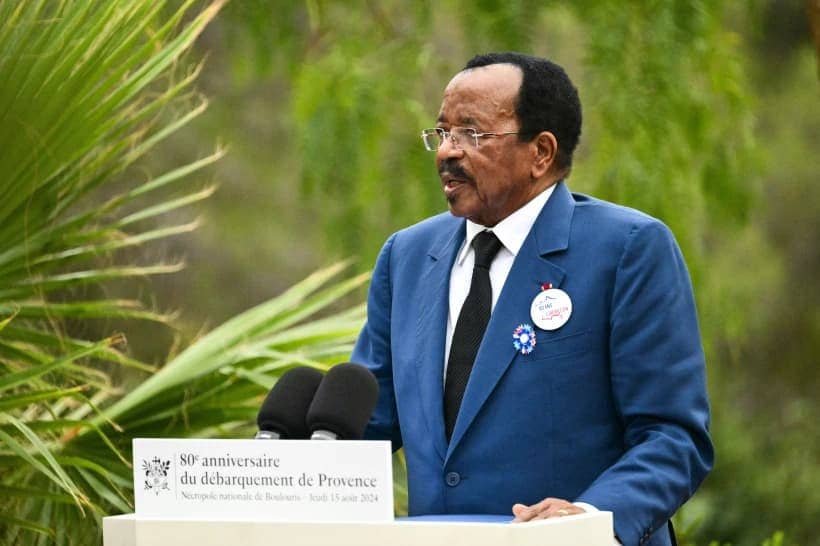YAOUNDÉ, Cameroon – Faith leaders in Cameroon’s conflict-torn Anglophone regions have endorsed a government reconstruction plan.
The current crisis began in 2017 after government forces ruthlessly put down strikes organized by Anglophone teachers and lawyers over perceived attempts by the majority French-speaking government to destroy the common law and British-style education systems practiced in the formerly British-ruled North West and South West regions of the country. The breakdown in attempts at dialogue resulted in the growth of several separatist movements.
The resulting conflict, now in its fourth year, has killed over 3000 people, with about a million forced from their homes.
Christian and Muslim leaders met with officials of the United Nations Development Program (UNDP) on Aug. 5, where they supported a $160 million recovery and reconstruction plan.
Noting that the peoples of the two Anglophone regions were now facing a double jeopardy – the separatist insurgency and the COVID-19 pandemic – the religious leaders said they were endorsing the plan because “it focuses on the people in strengthening social cohesion, revitalization of the local economy, and access to basic services.”
In a statement sent to Crux, the religious leaders also called on the people of the North West and South West regions “to cooperate and facilitate the implementation of the program.”
According to Paul Tasong – the Coordinator for the National Committee for the Presidential Plan for Reconstruction and Development (PPRD) of the North West and South West Regions – there will be need to rebuild or repair 350 schools, 90 health centers, and 40 bridges. In addition, over 12,000 homes that have been destroyed will need to be replaced.
Some 700 farmers will also have to be recapitalized and 200,000 people who lost official documents – including school certificates, national certificates and civil status documents –will have to be assisted to recover them.
Cardinal Christian Tumi – Archbishop emeritus of Douala – took part in the meeting with the UNDP.
“We don’t have the means to carry out the recovery project, but we will give any group willing to do that our moral support,” he told Crux.
He said for the plan to succeed, there needs to be a synergy of actions between the population and the military.
“I say this because the people and the military have been enemies,” Tumi continued.
“There was much killing of the people by the military, and also killing of the military by these boys who say they are fighting for the people. That’s why I say everybody should come together. Let there be that reunion. Let the interior wounds be healed. Let development communities be founded to bring together the people in every village that needs to be reconstructed,” the cardinal explained.
Anglophone separatists for the self-declared Republic of Ambazonia have called on their fighters to disrupt the rebuilding effort, saying they will not allow reconstruction “on our territory by a foreign government.”
However, Tumi says obstructing the reconstruction effort goes against the public good.
“I think whatever the problem; Good should be done where good should be done. And when it is evil, it should be avoided. And I think stopping reconstruction from going on is an evil and it should be avoided,” the cardinal said.
Tumi also expressed his dissatisfaction with the character of the separatist leaders and fighters.
“I have met some of these boys … I told them I disagree with you on so many points. One, you yourselves are very intolerant. Anybody who disagrees with you, you condemn the person to death, which means if we give you power today in an election, you will condemn the opposition. Everybody who disagrees with your government is an enemy. And that you are like Hitler,” he told Crux.
“Secondly, your interference in schools. Your organization is fighting against the future of your junior brothers and sisters. And thirdly, you do not know how your people back home are suffering,” the cardinal added.
Tumi was referring to a separatist schools’ boycott, which has deprived the children in the Anglophone regions an education for years. Those who violate the boycott face summary execution or kidnapping.
The timing of the reconstruction plan has been criticized by the United States. The U.S. Under-Secretary for African Affairs, Tibor Nagy, said on July 31 reconstruction efforts would be impossible to carry out while fighting continues.
“The Cameroonian government is talking about the UN development program for the North West and South West. Unfortunately, there is just no way to implement that. The government seems to forget that the number one desire of the people of the North West and the South West Regions is to have a say in their own affairs.” Nagy said.
“It is one thing to talk about development but at the heart of it is the key desire to have control over their own lives. Until the Cameroonian government understands that, all these plans are going to come but are not going to succeed,” he added.
Tumi says the anger felt by the Anglophone population is justified after decades of marginalization and discrimination by the Francophone majority, but adds the solution is not independence.
“The whole of Africa wants to be one country. The whole world is coming together. I don’t see who will work with us as a small state like in the English-speaking part of Cameroon; so federalism is the form of state I will vote for today as a Cameroonian.”















